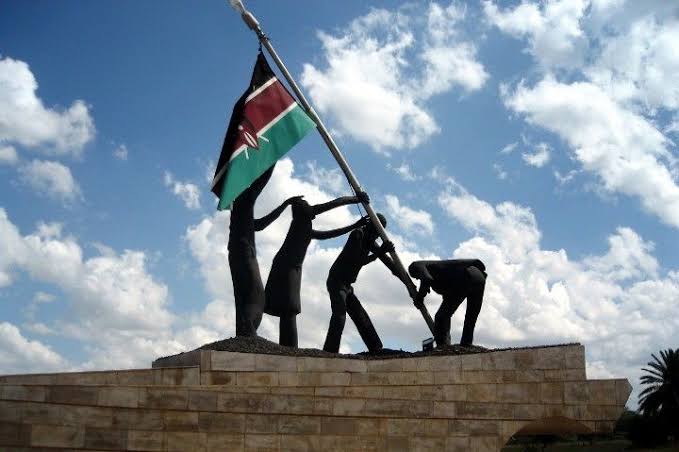NAIROBI, Kenya, Oct, 20 – Mashujaa Day, also known as Heroes’ Day, is a public holiday to honour all Kenyans who have contributed towards the struggle for Kenya’s independence as well as recognize all those that have brought fame and glory to our nation in various aspects and spheres of life.
This year’s Mashujaa day anniversary is distinctive, coming at a time when the nation is simmering down after a hotly contested general election and grappling with the high cost of living, inflation, hunger, drought and Covid-19 ravages.
As we mark and celebrate this historic day, it is imperative to note, a healthy nation is a wealthy nation and its stability is in the palms of its citizens.
For the past three years, the nation has undergone a myriad of socio-economic and political constraints.
We have experienced adversity and moments that have seen forth the loss of loved ones, statesmen and ladies, massive job redundancies, closure of businesses, immense pressure on health systems, travel bans, lockdowns, political polarization, and ethnic profiling.
The shopping baskets for most Kenyans have become significantly smaller. Families are on the verge of starvation and malnutrition, with many facing the impossible choice between food, water, and medicine, daily. Prospects of rapid economic recovery for Kenya and a better quality of life in the short-run, appear grim.
Mental and psychological pressures either at family unit levels or the workplace, with cases of suicides, femicides and homicides are on the rise as a result of the inability by the majority to meet common basic demands.
The public resentment over skyrocketing food prices and the high cost of living needs empirical intervention measures by the government of the day. The government needs to step in authoritatively and double its efforts in cushioning Kenyans against the spiralling food, farm inputs and fuel prices.
The minimum wage hypothesis has failed; it has not kept pace with the rising cost of living, causing many Kenyans to live below the poverty levels. There is a need to adopt a living wage approach. The government’s borrowing spree has added an additional load on Kenyans. Unfortunately, much of the government revenue raised to service debts is lost to corruption, making the cost of doing business and living very high.
As we honor our heroes and heroines let’s all reflect upon the words of our national anthem; O God of all creation, bless this our land and nation, justice be our shield and defender, may we dwell in unity peace and liberty, plenty be found within our borders, this can only be achieved when the nation is at peace with itself, cohesive, adherent and respect to the rule of law.
Liberations have been with us from the very time our forefathers struggled and won against the colonialists to bring independence. The clamor to amend the 2010 Kenya Constitution should not be the root cause of sowing negative ethnicity, and citizenry division along religious and class war.
The political class and leaders should strive and focus on bringing something on the table for our heroes and heroines to smile about; and that can be by taking a lead role in, scaling the war against corruption, inflation, high cost of living, drought, ignorance and poverty, advocating for a united and cohesive nation devoid hate-speech, incitement, divisive politics and violence as the 5th regime settles in office.
The government of the day should focus on making Kenyans’ lives a little easier by putting in place policies and intervention measures to cushion the population against food insecurity.
Measures include the provision of emergency food assistance; adoption of food safety nets; food subsidies; cash transfer; food for work and food for training; school feeding programmes, adjustments in trade and tax policy measures; enhancement of agricultural production through agricultural input subsidies and increased administered prices for producers should be strengthened in the short-term approach.
Long-term mitigative measures that include investment in agricultural research; increased investment in key agricultural services; investment in local infrastructure; investment in rural financial services, markets and linkages; investment in teleprocessing; investment in food distribution systems and macro-economic policy management should be in consideration and in place, devoid of politicization.
Key stakeholders in the food sector should continue to analyse food prices and related issues, and come up with strategies for early warning to avert the negative effects of high food prices in the future.
The relevant authorities need to put in place mechanisms to respond to early warning of disasters such as droughts and floods. There is a need to increase agricultural productivity. This requires the government to expedite the implementation processes for the various formulated policies.
As we mark this year’s Mashujaa day; let all be cognizant that the war against Covid-19 variant is not yet over. The solution lies in getting a complete dose of the Covid-19 vaccine.
The writer, Dennis Wendo is the Founder, Integrated Development Network
Email: dambehi@gmail.com
Want to send us a story? Contact Shahidi News Tel: +254115512797 (Mobile & WhatsApp)


